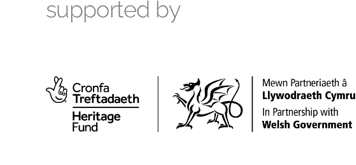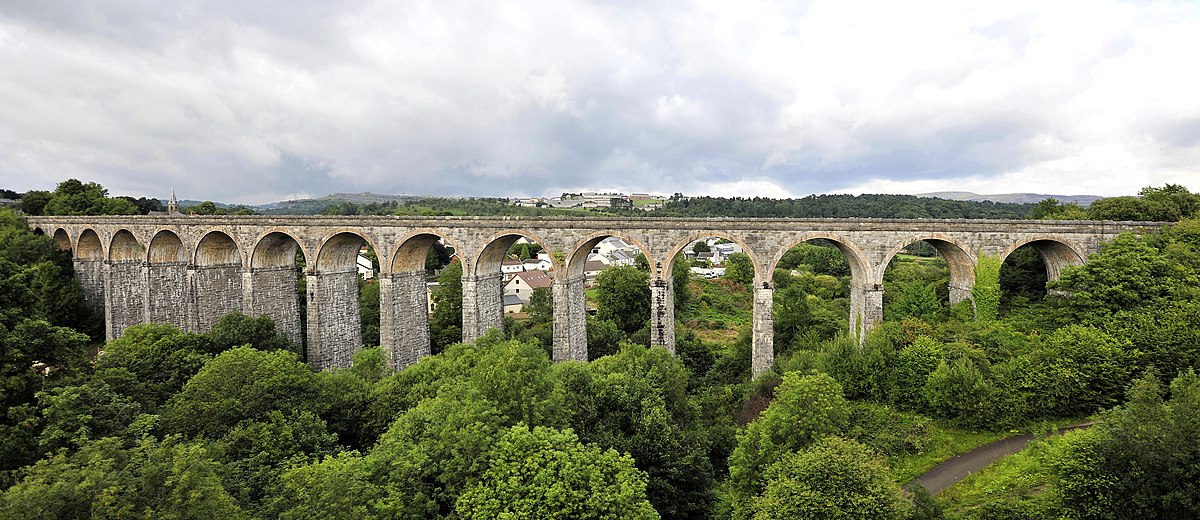
Heritage Trails – Jewish Merthyr Tydfil
Source: Marcus Roberts, JTrails ©

Merthyr’s Jewish community dates from the 1820s. The first Jewish settlers appear to have been second-hand clothiers, ‘old clothes men’ as well as hawkers and peddlers.
There is a rich and important local Jewish history and heritage in Merthyr, once the foremost Jewish community in Wales and its former Gothic synagogue is the oldest surviving synagogue building in Wales and one of the most visually outstanding in the UK.
The Merthyr Jewish story is especially linked to the industrial story of Merthyr; the iron and steel industries, the production of iron rails sent across the world, and local coal mining.
Local Jews had shops and businesses which serviced the needs of the industrial community and there was also an important contingent of Russian Jewish labourers working in the Rail Bank at Dowlais.
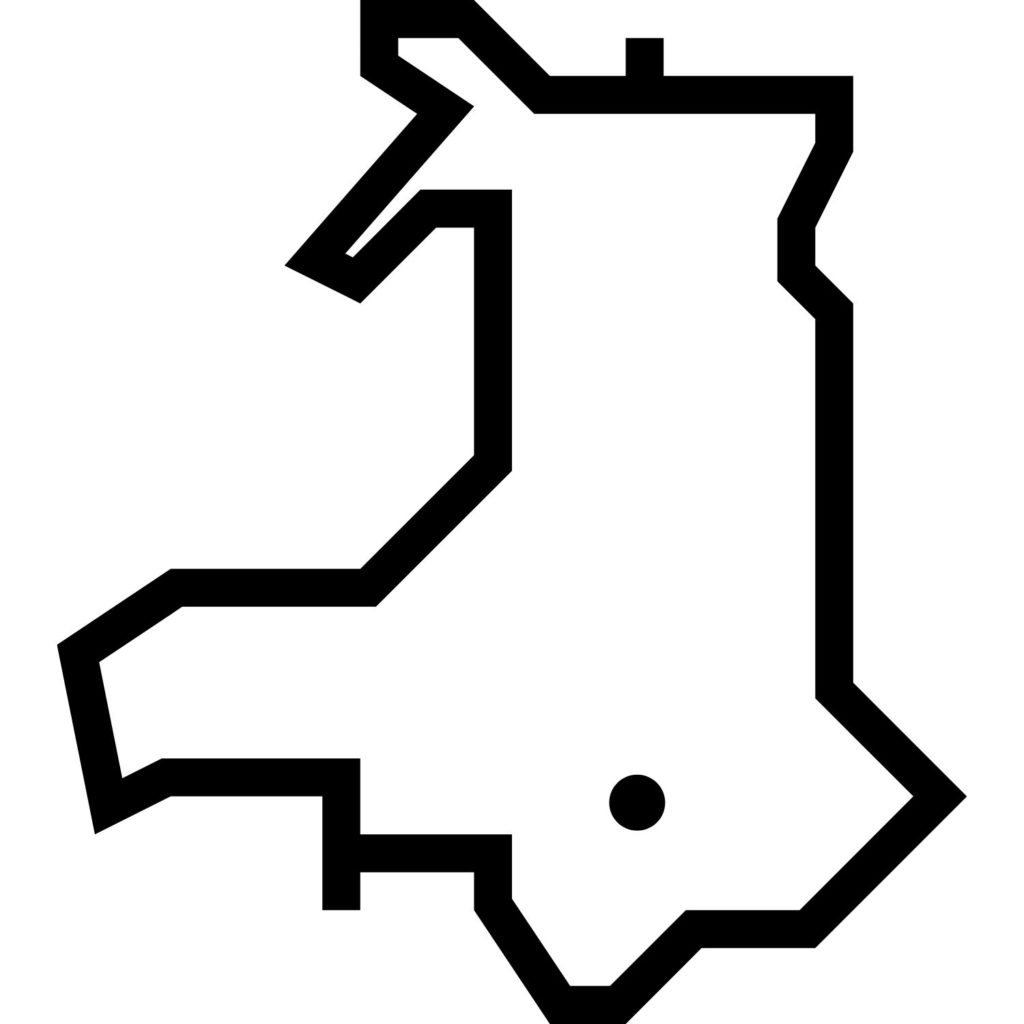
(1) Remains of the Synagogue of 1852, off Church Street and Temple Street
The Merthyr Hebrew Congregation was founded in 1848, with the first synagogue in Bethesda Street, with a second in 1852 off Church Street, adjacent to the Temperance Hall.
This site is confirmed on the ordnance survey map of 1976, showing a very small fabric labelled as ‘Synagogue’ next to a Temperance Hall and which was only 14m x 8m.
These walls still exist adjacent to a car park off Church Street, abutting 1 Temple Street, not far from the Miner’s Hall and the space, or yard, between this former North Wall of the synagogue and the adjacent terrace on Temple Street, is the exact former footprint of the building. It appears not to have been noticed previously that Temple Street could well have been named in regard to the former synagogue.
(2) The Former Synagogue
The main synagogue of Merthyr Tydfil became the Victorian building constructed and opened in 1877. It accommodated for over 200 congregants and the men and women were separated with a ladies gallery upstairs as is the custom with Orthodox synagogues.
At its peak, the synagogue served a community of around 400 people. The Jewish population slowly declined during the 20th Century and the synagogue was closed in 1983.
The Foundation for Jewish Heritage purchased the building in 2019 with plans to transform it into a Welsh Jewish Heritage Centre.
(3) Merthyr Jewish Cemetery – Cefn-coed-y-cymmer
Another major surviving Jewish heritage site is Merthyr Tydfil Jewish Cemetery, situated to the north of the town at Cefn-Coed and extended in 1935. As there were only 3 Jewish cemeteries in South Wales, it served a large area and mourners often had to walk long distances behind the hearse if they were coming from other communities without a cemetery.
The cemetery is on the opposite side of the road to the municipal cemetery and clings to the steep slopes of a local mountain on a terrace above the road. It has a dramatic and picturesque location, with a fine brick Ohel at its center (1898) accessed by a low gateway and steps up from the road. The ohel has some rare Victorian ohel furniture – essentially a raised platform for the reader with a lectern and low bench seating either side for the mourners. There is also a small fireplace which would have been necessary in the autumn and winter. There are a variety of wall plaques, some from the former synagogue.
The oldest section, the Victorian section, has a variety of well-made memorials with some on a relatively large scale and individually designed with kerbstones. Newer burials are at either end and include Abe Sherman, at the very south of the ground, nearest the road.
The cemetery helps tell the story of the local community and is of significant interest and well worth visiting. It is on the A405 a quarter of a mile from its intersection with the A470, so it is well out of town. From the Merthyr direction, you need to travel along the Brecon Road to Cefn-coed-y-cymmer and then carry on travelling along the Upper High Street (the A470) until it is reached on your right, after the gates to the municipal cemetery on the left. The gates are left open.
(4) Sherman Betting Shop and Ben Hamilton Office, 8 – 9 Glebeland Street
The Sherman brothers founded Sherman Pools Ltd after the First World War and had betting shops in Victoria Street, Cardiff and also at 8 Glebeland Street, in Merthyr. The latter premises were shared with local solicitor, Benjamin Hamilton, who had his offices upstairs. The two businesses made the brothers a fortune, a significant portion of which they passed on to various charities.
A remarkable home movie of Abe Sherman and his business on Glebeland Street survives from 1938, and can be seen online at the BFI. In the movie, Abe can be seen confidently promenading up and down the street, familiar, friendly and at ease with all passers-by, the very picture of Jewish social and economic integration. There are also views of work in the shop, with Abe and others working through receipts at high speed and in clouds of cigarette smoke.
The building now appears to be ‘Wrap ‘N’ Roll’, 8-9 Glebeland Street, Merthyr Tydfil CF47 8AU.
(5) Abe Sherman’s Home, Park Lodge – Queen’s Road, Thomastown
Abe Sherman always lived in Merthyr and was extremely fond of his home at Park Lodge (adjacent and uphill from the synagogue).
He lived there in some style. The seven bedroomed house also has a garden of 1.25 acres, with two greenhouses, terraced lawns, trellised arches, a fishpond and a shed full of battery hens, then a comparatively new method of keeping poultry.
A 1930s home movie, accessible to the public online at the British Film Institute (BFI), shows Abraham and his wife Annie in their beautiful garden holding up home-grown produce to the camera and with flower gardens teaming with blooms.
(6) OP Chocolates – High Street Dowlais
In the 1930s, the largest Jewish industrial concern in Merthyr was OP Chocolates (known predominantly for the Pischinger Torte and Walnut Whirls, both plain and coffee flavor) and they also produced seasonal chocolates, along with Easter and Christmas novelty chocolates.
The factory is still in operation, next to Dowlais High Street. There was also the Welsh Button Factory, founded by German Jewish refugees.
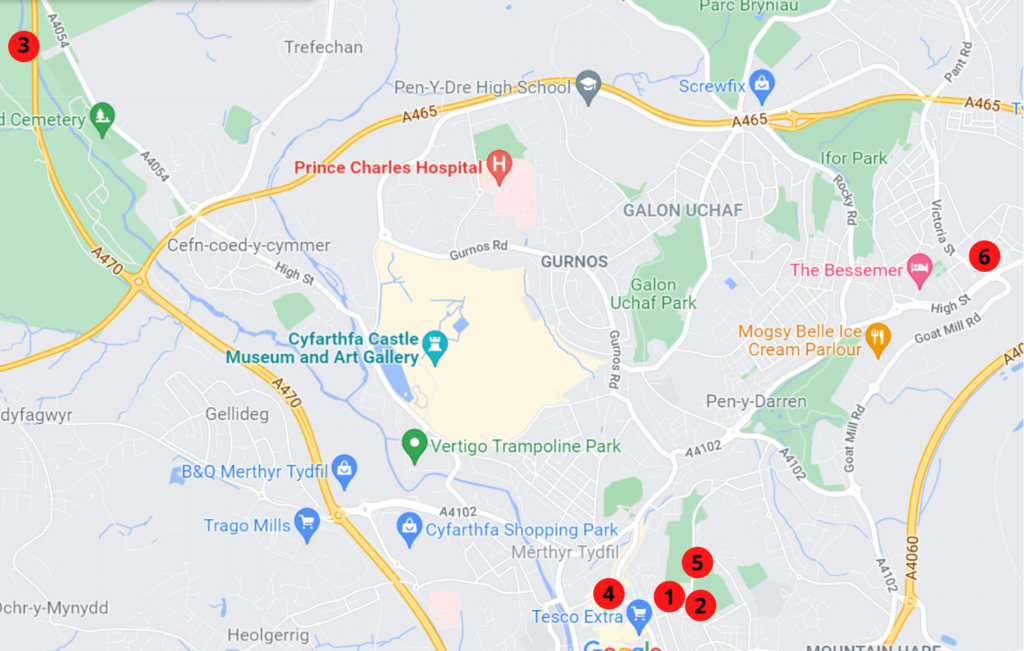
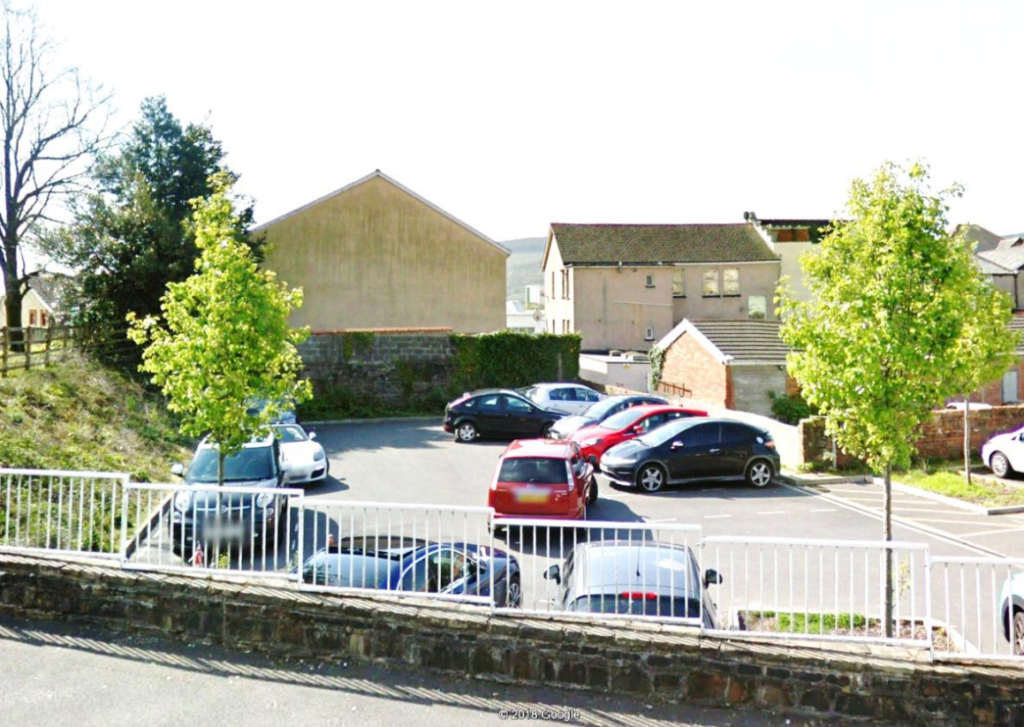
Photo by Ph. M. Roberts
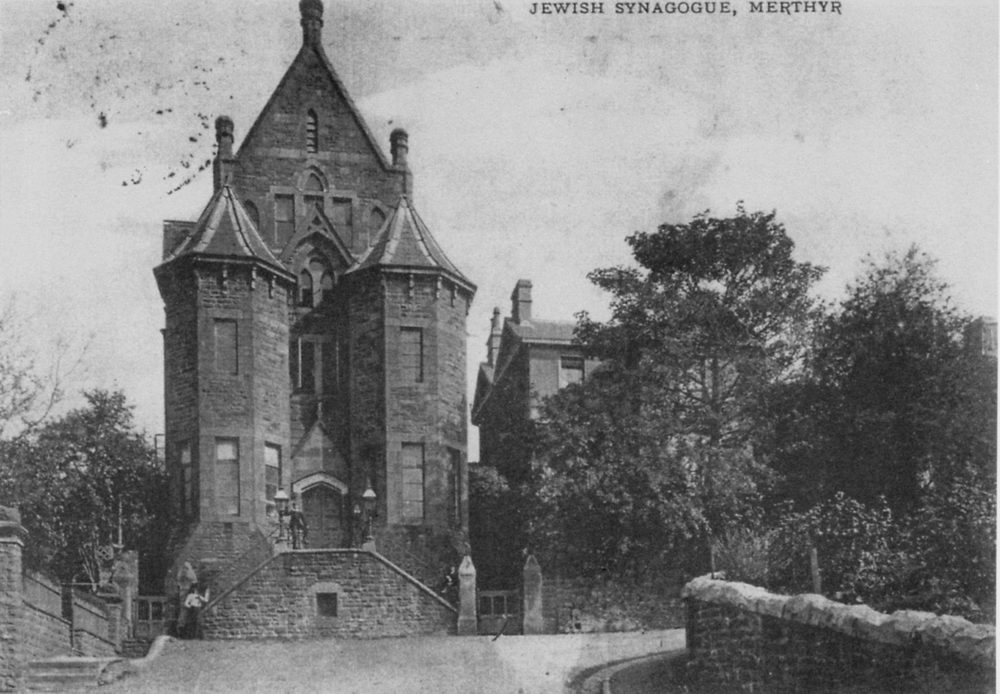
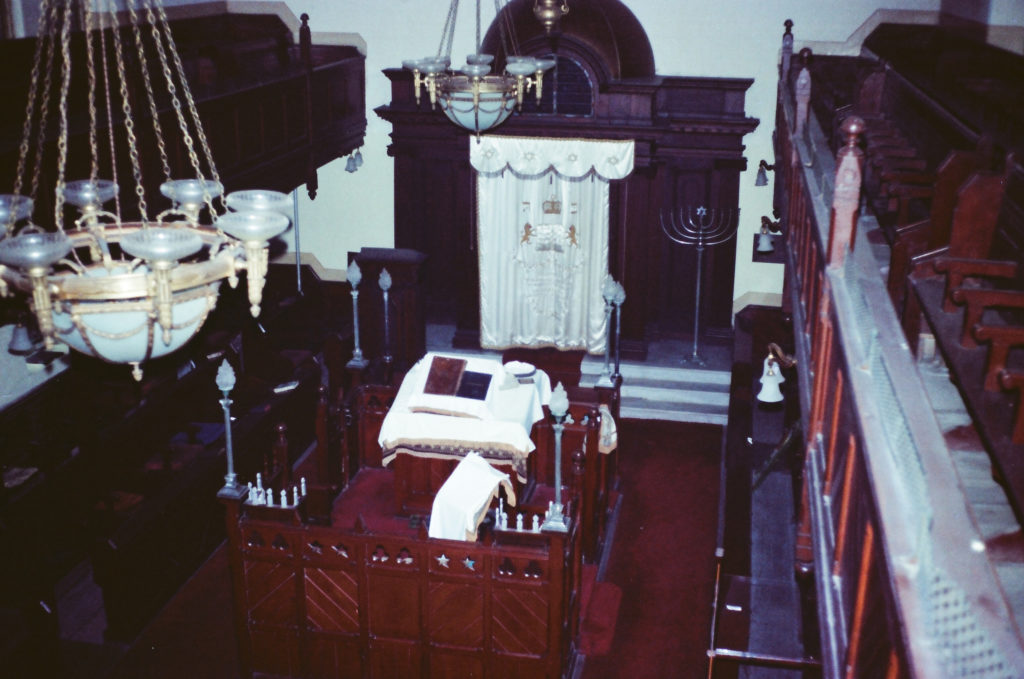
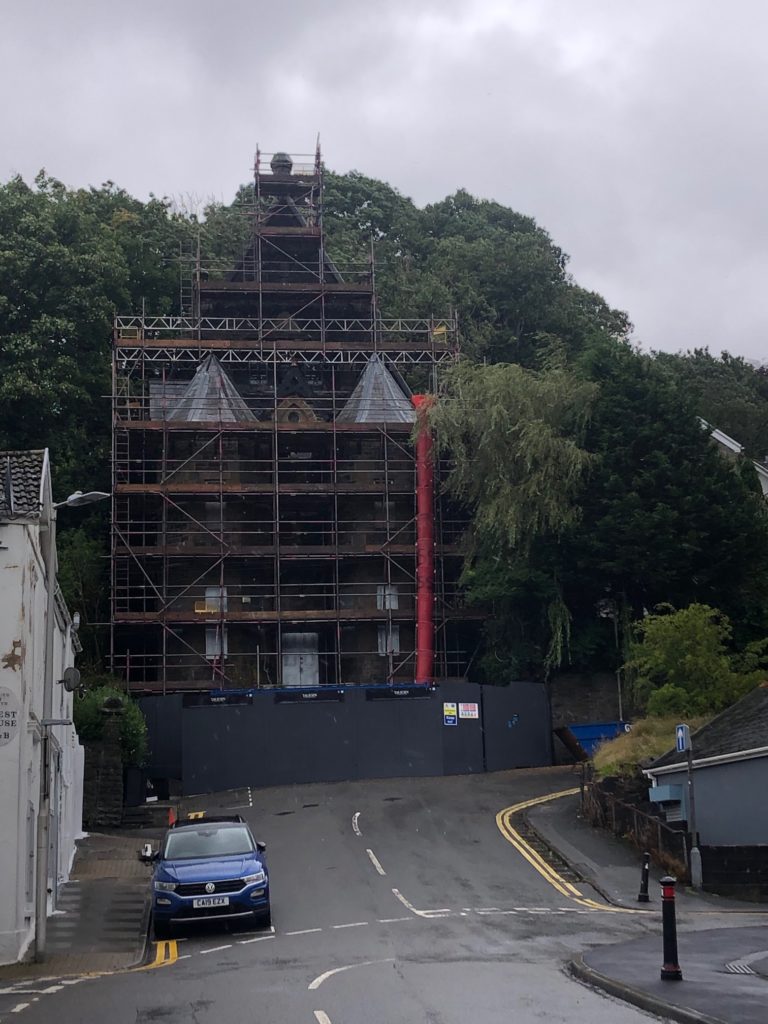
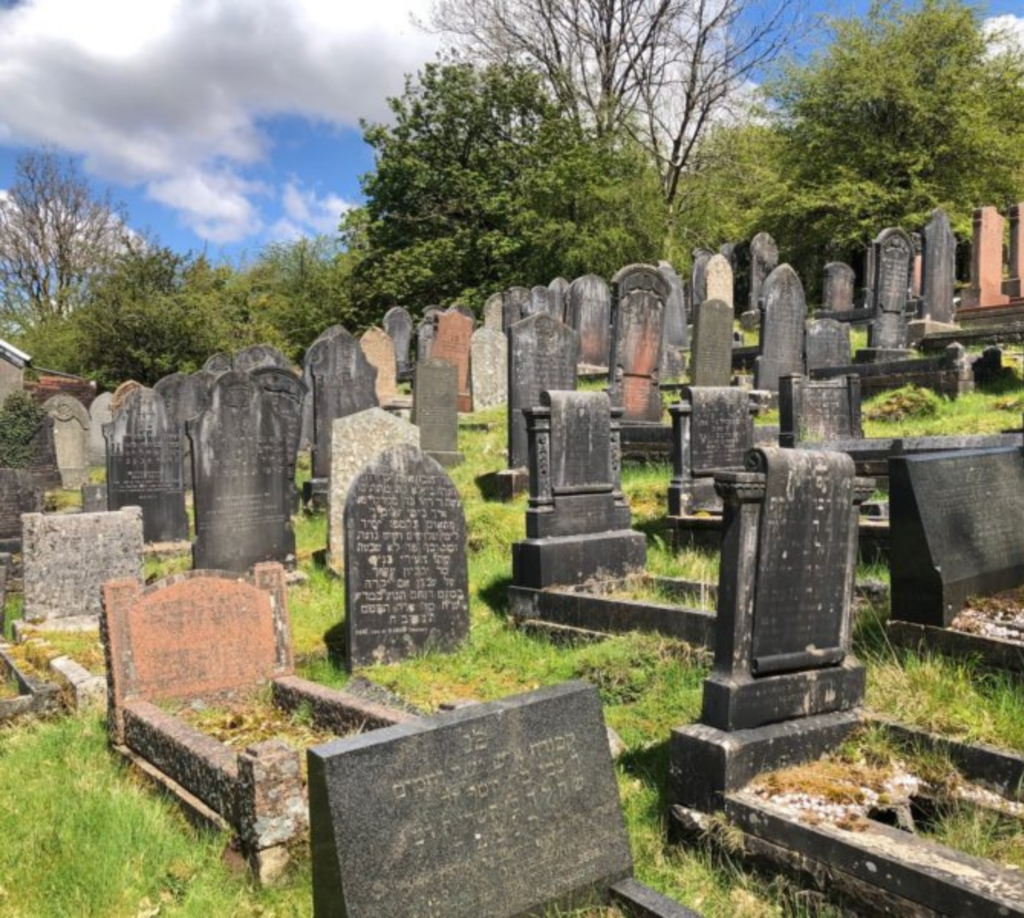
Photo by Ph. M. Roberts




